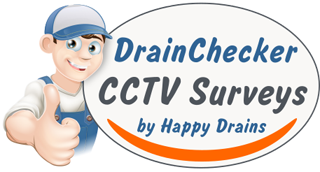If you have recently experienced issues with blockages in your drains and pipes, there are a number of steps you can take in order to prevent any further problems. The best way to prevent your drains from clogging up is to be cautious about what you put into them.
Grease, coffee granules, hair, soap suds and scum are all things you should never let go down the plugs in your home. You should do whatever you can in order to stop these items from making their way down your drains. Cooking grease should be stored away from the sink, for example in a leftover coffee can or cardboard container. It can then be disposed of in a bin. Coffee grounds should also be disposed of via your bin, or you can add them to your compost to be even more environmentally friendly.
The ideal way to ensure no bits and bobs, hair or soap scum enter your pipes and drains is to use a drain cover. Whether you decide to add this to your drain outside or over your plug hole, both can work as effective ways to catch any items you don’t want making their way down to your drain.
The following tips and tricks can help you to prevent any further blockages to your homes drains and pipes:
- Use boiling water to your advantage. Pouring boiling water down your drain will help to keep oil and grease from running down the drain and sticking to the sides. These items can dry solid, which promotes a build-up on the interior surface of the pipes.
- Add baking soda. Baking soda works really well as a cleaning agent as it helps to absorb odours and keep your pipes as clean as possible. When combined with boiling water, this mixture works to create pipes that are clog-free.
- Use standard vinegar. A standard cup of vinegar contains acetic acid, which works well as a cleaning method. By pouring a cup of vinegar down the drain and letting it sit for around half an hour can act as a solvent, removing all build up that has found its way inside your pipes.
Store bought drain cleaners can also be used, though it is advised that these are not used regularly. This is because they are often unsafe when used in large amounts. Follow the directions on the label to ensure you are using the product in the correct and safest manner.
If your drains are beginning to clog up again, it may be a sign of a larger problem. For more information, or to find out how we can help you, you can get in touch with a member of the Drain Checker team by visiting our contact page or by calling us on 0800 849 8099.


